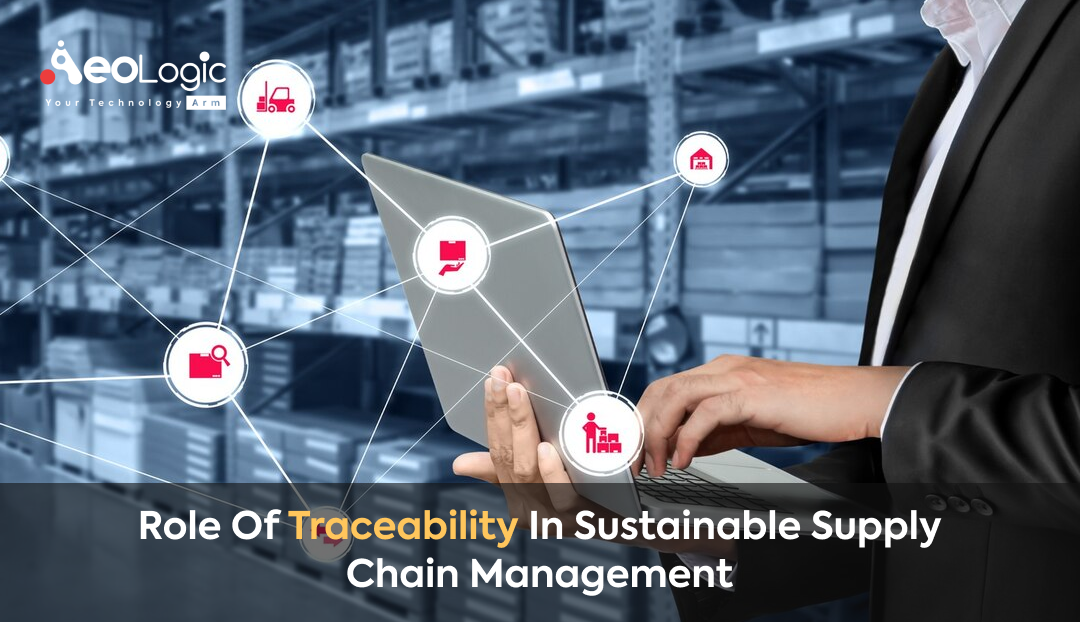In today’s world, sustainability isn’t just a buzzword; it’s a commitment. And the supply chain plays a crucial role in the bigger sustainability picture. But here’s a pressing question: how can we ensure transparency and credibility in our supply chain sustainability efforts? That’s where the role of traceability in sustainable supply chain management comes into play.
Before diving deeper into the nuances of traceability, let’s address a fundamental question: Why does traceability matter so much in the realm of sustainability? Its influence stretches far and wide, playing a pivotal role in reshaping the very core of supply chain management.
What is Traceability?
Traceability, at its core, is the ability to trace and track every stage of a product’s life, from its inception as a raw material to its final form as a consumable product. It is akin to giving each product a unique story – detailing where it came from, the processes it underwent, who handled it, and how it reached the end consumer. This clear chain of custody ensures transparency, authenticity, and accountability in the product’s journey.
Why is Traceability so Important?
Imagine you’re about to enjoy a delicious chocolate bar. Ever wondered where the cocoa in that bar came from, who grew it, and under what conditions? Or think about that chic dress you bought last week. Do you know who made it and where the raw materials were sourced?
The answers lie in traceability. Simply put, traceability means tracking every item right from its origin to its final destination, and it’s vital for three reasons:
- Transparency: It gives clear visibility of the origin and history of products.
- Accountability: It holds businesses responsible for their sustainability claims.
- Informed Decision-making: It empowers consumers and businesses to make decisions aligned with their values.
Also Read our trending blog: Traceability Solutions for Supply Chains with Examples
How does Traceability Influence Sustainability in Supply Chain Management?
Before diving deeper into the nuances of traceability, let’s address a fundamental question: Why does traceability matter so much in the realm of sustainability? Its influence stretches far and wide, playing a pivotal role in reshaping the very core of supply chain management.
Driving Ethical Practices
With traceability, businesses can track products from source to shelf, ensuring that ethical labor practices are maintained throughout. This eliminates exploitative labor practices like child labor and unfair wages. Moreover, when companies recognize the origin of their goods, they can proudly showcase their associations with ethical suppliers, boosting their reputation.
Reducing Environmental Impact
Beyond ensuring ethical labor practices, traceability provides a lens to the environmental footprint of products. By tracking raw materials and production methods, businesses can pinpoint areas of excessive resource use or pollution. Implementing traceability means businesses can actively work to lower their carbon footprint and opt for more sustainable methods. This doesn’t just help the planet; it’s also a proactive approach to future-proofing against environmental regulations and restrictions.
Boosting Consumer Trust
According to a 2020 report by the World Economic Forum, 77% of consumers prefer to buy from brands that demonstrate sustainability and traceability. By providing credible information about product origins, businesses not only build trust but also enhance their brand value. Furthermore, in this age of information, consumers are more informed than ever. They demand transparency, and companies with a clear traceable supply chain stand out, fostering brand loyalty.
In essence, the Role of Traceability in Sustainable Supply Chain Management is multifaceted. It’s a commitment to ethical practices, a promise to the environment, and a testament to consumer trust.
Also Read: The Future of Traceability in the Grocery Industry
Boosting Consumer Trust
According to a 2020 report by the World Economic Forum, 77% of consumers prefer to buy from brands that demonstrate sustainability and traceability. By providing credible information about product origins, businesses not only build trust but also enhance their brand value. Furthermore, in this age of information, consumers are more informed than ever. They demand transparency, and companies with a clear traceable supply chain stand out, fostering brand loyalty.
In essence, the role of traceability in sustainable supply chain management is multifaceted. It’s a commitment to ethical practices, a promise to the environment, and a testament to consumer trust.
Statistics Speak Louder
| Fact | Statistic | Source |
|---|---|---|
| Percentage of consumers preferring traceable products | 77% | World Economic Forum |
| Increase in sales of sustainable products (2018-2020) | 29.4% | Nielsen |
| Potential business value unlocked by traceability | $941 billion by 2025 | Accenture |
Ensuring Authenticity of Raw Materials
Traceability ensures that the materials used in products are genuinely what they claim to be. For instance, in industries like jewelry, where the authenticity of materials like diamonds and metals is crucial, traceability can verify that the resources are ethically sourced. This prevents the sale of conflict diamonds or metals extracted in ecologically harmful ways, ensuring that customers receive genuine products and the earth isn’t harmed in the process.
Optimizing Resource Utilization
Another significant advantage of traceability is its ability to prevent wastage. By tracking the journey of raw materials and products, companies can pinpoint areas where resources are being wasted or used inefficiently. This can range from excessive use of water in certain production phases to energy wastage during transportation. By optimizing these processes, businesses can reduce their carbon footprint, save on costs, and contribute significantly to sustainability.
Do you know? What do Traceability Solutions Mean to Your Business?
Final Words
The role of traceability in sustainable supply chain management is not just a trend or a passing fad. It is the cornerstone of a new era of business that values transparency, ethics, and true sustainability. As consumers become more discerning and businesses more accountable, the traceability of products isn’t just a ‘nice-to-have’ it’s an absolute necessity.
Whether you’re a business leader aiming to pave the path of integrity or an informed consumer striving for ethical choices, understanding and championing traceability is the way forward. Together, let’s craft a future where every product tells a story of sustainability, respect, and responsibility.
And as we embrace the future of sustainable and traceable supply chains, partnering with innovative leaders like Aeologic Technologies ensures that our journey is both impactful and forward-thinking.









